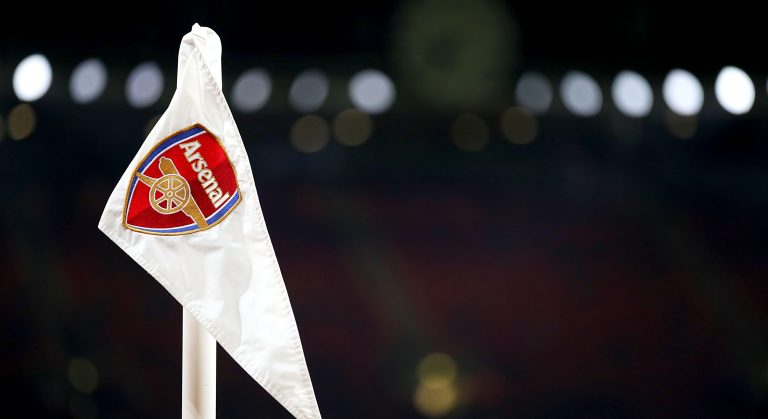Premier League Predictions & News
Premier League Salaries – How Much Do Players Earn?

The bubble is yet to burst in the Premier League. Instead, it continues to expand…
With highly lucrative TV deals scaling new heights every time they are renewed, it affords mid-level Premier League clubs the financial might to lure Champions League players away from European giants.
Bigger clubs meanwhile wilfully spend the GDP of a small nation each time they encounter crisis or feel the need to overhaul a squad already laden with superstars.
Naturally, a high wage bill is no guarantee of on-field success, but almost inevitably we find that the clubs who are routinely among the favourites in the Premier League betting odds are the most lavish spenders.
Of course, there are exceptions to this rule. Brentford have averaged a 12th place finish since gaining promotion in 2021 despite having the second lowest wage-bill.
Brighton too commendably outperform what is a relatively modest outlay.
Let’s take a look at all 20 Premier League payrolls in 2024-25.
Premier League Wage Bills
- Manchester City – £201.8 million
- Manchester United – £185.5 million
- Arsenal – £172.1 million
- Chelsea – £171.2 million
- Liverpool – £128.8 million
- Tottenham – £104.8 million
- Aston Villa – £104.6 million
- Newcastle – £103.2 million
- West Ham – £90.2 million
- Crystal Palace – £69.8 million
- Everton – £69.3 million
- Fulham – £68.4 million
- Leicester – £65.4 million
- Nottingham Forest – £63.4 million
- Brighton – £60.6 million
- Southampton – £56 million
- Bournemouth – £54.7 million
- Wolves – £53.2 million
- Brentford – £41.4 million
- Ipswich Town – £33.1 million
*Figures correct as of December 2024*
Manchester City only became the Premier League’s top spenders on wages recently, at the start of the 2023-24 season to be exact.
They overtook Manchester United, whose wage-bill in recent years can be viewed as excessive given their lack of on-field success. The same can be said of Chelsea.
At least the Red Devils have cut their cloth somewhat in the last couple of years, fearful of breaching FFP.
Average Premier League Player Salary
The average Premier League salary is in the region of £67,000 per week.
This number has trended upwards throughout the Premier League era. Salaries have increased consistently, with occasional spikes due to renewed broadcasting deals.
Subsequently, Premier League players are paid much higher wages than their peers in La Liga, Serie A, and the Bundesliga.
The top six Premier League teams obviously drag this average up, but even mid-table Premier League sides are handing out £100,000-per-week contracts, which would have been unheard of even a decade ago.
There are understandable concerns about whether the average Premier League salary will ever stop escalating. But as money keeps pouring into the league through massive commercial deals and wealthy owners, it doesn’t feel like the tap is getting turned off anytime soon.
Biggest Premier League Player Contracts
Kevin De Bruyne is the highest-paid Premier League player at £400,000 per week. The Belgian midfielder comes in just ahead of his Manchester City teammate, Erling Haaland.
Sharing third spot is Manchester United’s Casemiro and Liverpool’s Mohamed Salah, the latter presently embroiled in a contract dispute with his club. Should he get his way and remain on Merseyside we can expect the Egyptian to reach parity with De Bruyne in the not-too-distant future.
Marcus Rashford, Jack Grealish, Bruno Fernandes and Bernardo Silva are the other Premier League players on £300,000 per week or more, according to Spotrac.
Though Manchester City have the highest payroll by a considerable margin, the highest-paid Premier League players list features an even mix across the country’s top five teams.
Arsenal have five players in the top 20, after spending big money to bring in Gabriel Jesus, Declan Rice, Martin Odegaard and Kai Havertz in recent years. United have four.
To their credit, Liverpool have just two despite the Reds currently being hot favourites in the football betting to secure this season’s title.
Premier League Salary Cap
The concept of a Premier League salary cap has often been mooted, if only to bring greater financial parity to the top-flight.
While non-big-six teams are a lot wealthier than they were five years ago, they are still miles behind the top teams. Manchester City’s wage bill is nearly double that of Aston Villa’s, which is the seventh highest in the Premier League.
The combined payroll of Crystal Palace, Everton, and Fulham adds up to around £187 million. That would be the third-most in the Premier League.
Furthermore, there is the game’s health to consider, and the persistent fret of a club over-extending and going bust.
Financial regulations play their part to prevent this, but a salary cap similar to the NBA and NFL could go a long way to ensuring that clubs keep within their means.
Are Premier League Players Overpaid?
It instinctively feels morally wrong that professional footballers earn substantially more in a week than most people do in a year.
Yet it must be acknowledged that the money is entirely generated by the success of the Premier League, for which the players are primarily responsible.
Moreover, where would the money go if wages were reduced? Would ticket prices drop? Or would billionaire owners simply line their pockets further?
Premier League Salaries & Wage Bills Questions
How Much Does A Premier League Player Make?
The average Premier League salary works out just north of £250,000 per month. Kevin De Bruyne, the league’s highest earner, receives in the region of £1.7 million per month.
Do Premier League Players Get Paid Weekly?
Yes. Regardless of injury, matches or availability, Premier League players get paid every week.
Additionally, there are huge bonuses to factor in, principally for goals and wins.
Why Are Footballers Paid So Much?
Clubs are making more money than ever and this is being passed on to players.
Television deals and worldwide popularity have allowed the clubs to generate significantly more revenue. In the age of player power it means footballers been able to command higher wages as a result.
How Much Tax Do Footballers Pay In The UK?
Footballers in the United Kingdom are subject to 45% income tax, but they have a much lower 19% corporation tax rate for image rights.






